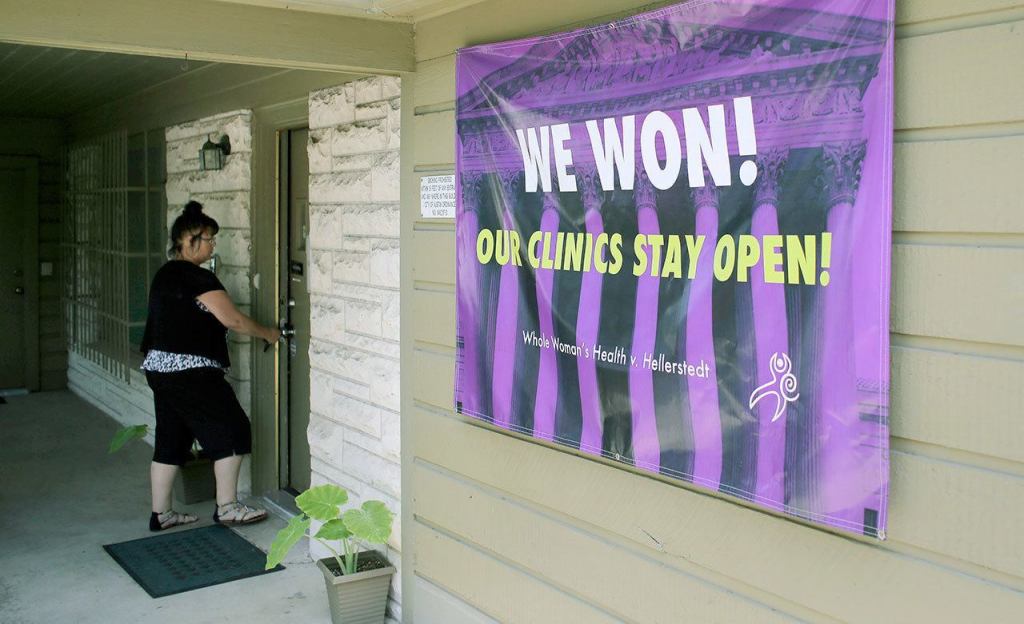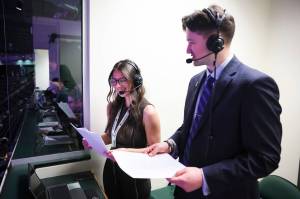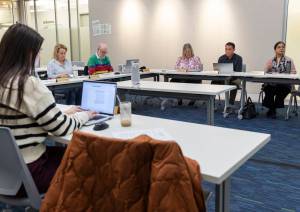Buffett-backed abortion researchers mess with Texas and win
Published 1:30 am Saturday, July 2, 2016


Bloomberg News
Behind the U.S. Supreme Court’s abortion ruling this past week was a small band of academic researchers whose trove of data and analysis was instrumental in dismantling some of the country’s toughest restrictions on the procedure in Texas and beyond.
The Texas Policy Evaluation Project, known as TxPEP, assigned five researchers to traverse the state to gather statistics from abortion providers, amass public records and interview women. The project was founded in 2011 at the University of Texas, Austin to study the effects of reproductive health measures passed by state lawmakers. Its work was created by funding from the Susan Thompson Buffett Foundation, named after Warren Buffett’s deceased first wife.
Supreme Court justices would reference TxPEP’s findings many times in the decision, the most sweeping on abortion in a generation. Supporting briefs relied heavily on TxPEP’s data, and plaintiffs attorneys used the group’s principal investigator, public health researcher Dan Grossman, as an expert witness. That bolstered their winning argument: that the law created outsized burdens for women seeking a constitutionally protected procedure.
“TxPEP was able to collect and analyze Texas-specific data about the impact of this law in real time,” said Stephanie Toti, the Center for Reproductive Rights attorney who argued before the Supreme Court. Because much of the other research in the field involves nationwide data, “all of that was incredibly helpful, and filled a gap that otherwise existed in the research landscape.”
While reproductive health research can be a political minefield, Joe Potter, one of TxPEP’s leaders, said he faced no interference from the university. The group sought private funding, which is typical for public health research. It received $4.6 million for research through this year and is applying for grants to continue through 2019.
The measure overturned by the Supreme Court, passed by Texas lawmakers in 2013 and known as House Bill 2, required abortion clinics to move or transform into ambulatory surgical centers — akin to costly mini-hospitals — and their doctors to obtain admitting privileges at nearby hospitals. Proponents pushed the law in name of protecting women’s health; opponents, with whom the justices sided, called this rationale a farce.
While other states had passed similar regulations, Texas made an ideal research case study. The regulations went further and into more detail, mandating everything from the size of hallways to the presence of janitor closets and back-up generators. Any effect would be widespread: Texas is the second largest state by area (after Alaska) and home to 5.4 million women of reproductive age. And it had a relatively large number of providers: more than 40, few of whom could comply with the new law.
TxPEP’s principal investigators, University of Texas, Austin sociology professor Potter and Grossman, a physician and former vice president for research at Ibis Reproductive Health in Cambridge, Massachusetts, had collaborated since 2004. They formally launched TxPEP to study the effects of Texas lawmakers’ 2011 decision to slash the state’s family-planning budget, together with colleagues from the University of Texas Population Research Center and the University of Alabama, Birmingham.
By the time lawmakers debated the abortion restrictions, TxPEP’s crew already had made inroads with the reproductive health community that would prove crucial. “It’s not easy to do research with abortion providers — for good reason, they often mistrust outsiders,” said Grossman, a provider himself and professor at the University of California, San Francisco. “Because we had been working for a while on other research with them, it was much easier for us to quickly collect the data.”
The Supreme Court had blocked the surgical-center requirement during litigation while letting the admitting-privileges rule take effect in 2013. About half of the state’s abortion providers couldn’t comply and closed or stopped offering the procedure as a result, leaving vast swaths of the state unserved.
TxPEP painted a picture of the obstacles Texas women faced in terminating pregnancies — and how those obstacles would grow were the surgical center provision to go into effect. The team documented how women needed to pay more and travel farther to reach the nearest clinic. They showed how wait times to get appointments increased, pushing some women to obtain abortions later in pregnancy or not at all, and studied attempts to self-induce. And they collected data to determine that full implementation of the law would mean the few facilities that remained couldn’t meet demand.
“The number of abortions that the clinics would have to provide would rise from ‘14,000 abortions’ annually to ‘60,000 to 70,000’ — an increase by a factor of about five,” Justice Stephen Breyer wrote for the majority, citing Grossman 11 times by name. “Common sense suggests that, more often than not, a physical facility that satisfies a certain physical demand will not be able to meet five times that demand without expanding or otherwise incurring significant costs.”
That analysis didn’t satisfy dissenting Justice Samuel Alito, who said the lawyers pressing the case failed to submit evidence about the actual capacity of the ambulatory surgical centers that could stay open under the law. “Faced with increased demand, ASCs could potentially increase the number of abortions performed without prohibitively expensive charges,” Alito wrote. During arguments in March, Justice Anthony Kennedy suggested he wanted more information about capacity as well, hinting he might push to return the case to a lower court for more fact-finding. Ultimately, Kennedy joined Breyer’s opinion, casting the pivotal vote to invalidate the Texas restrictions.
For the researchers, used to toiling in obscurity, the last week has been surreal. “Normally you write papers, publish them and someone may or may not read them,” said Potter. “It was a little weird to see my name so many times in the ruling, but it was very heartening to see how much attention the court paid to the evidence,” said Grossman.
The ruling’s significance was immediate: Just 24 hours later, the Supreme Court turned away appeals from Wisconsin and Mississippi to revive their doctor admitting privilege laws, and Alabama withdrew its appeal to implement the law. On Thursday, Planned Parenthood announced plans to use the ruling in its attempts to dismantle more abortion restrictions in Texas and 7 other states.






